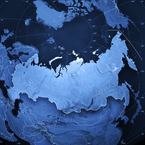
Commander David Slayton
David Slayton is a research fellow at the Hoover Institution, a member of the Shultz-Stephenson Task Force on Energy Policy, and co-chair of the Arctic Security Initiative. He was a national security affairs fellow from 2010 to 2011 and a visiting fellow from 2011 to 2012, during which time he was also engaged with legislative matters and national security policy development in Washington, DC.
During his navy career, Slayton completed twelve combat deployments, to include commanding the largest US Navy combat unit in Afghanistan in 2009. A career naval flight officer, he has flown more than three hundred combat missions, accumulating more than 4,300 flight hours in eight different aircraft. Slayton distinguished his unit and himself during extensive combat operations on the ground, at sea, and in the air in Afghanistan, Iraq, and surrounding theaters of operation.
His combat decorations include the Bronze Star Medal, three Meritorious Service Medals, and twelve Air Medals, in addition to numerous campaign medals and unit citations.
His research, writing, and contributions focus on national security, energy, and the Arctic and Asia-Pacific maritime strategy. Slayton’s latest congressional hearing and testimony occurred on May 21, 2014; his most recent collaborative publications include Game Changers: Energy on the Move (Hoover Institution Press, 2014) and Distributed Power in the United States: Prospects and Policies (Hoover Institution Press, 2013). In addition, Slayton has written, lectured, and presented on a variety of issues related to leadership, ethics, counterterrorism, cyber and irregular warfare; his work appears in and is cited by the US Congress Proceedings, the Hoover Digest, Brookings, Fox, CNN, and many other leading outlets, publications, and institutions. He has advised and assisted numerous private and government organizations, including various start-up and venture firms, Stanford’s Graduate School of Business, the Department of Defense, the Department of the Navy, and members of both Houses of the US Congress.
Slayton earned his bachelor’s degree from the University of California at Los Angeles. He holds two masters’ degrees, one in business and leadership from the University of San Diego, the other in national security and strategic studies from the Naval War College.








